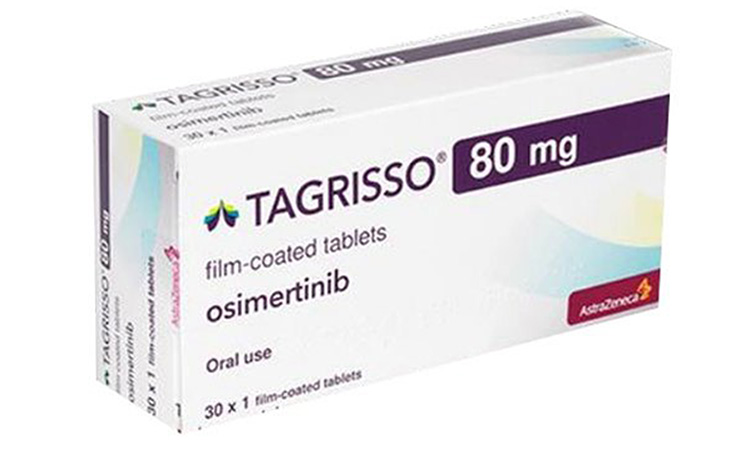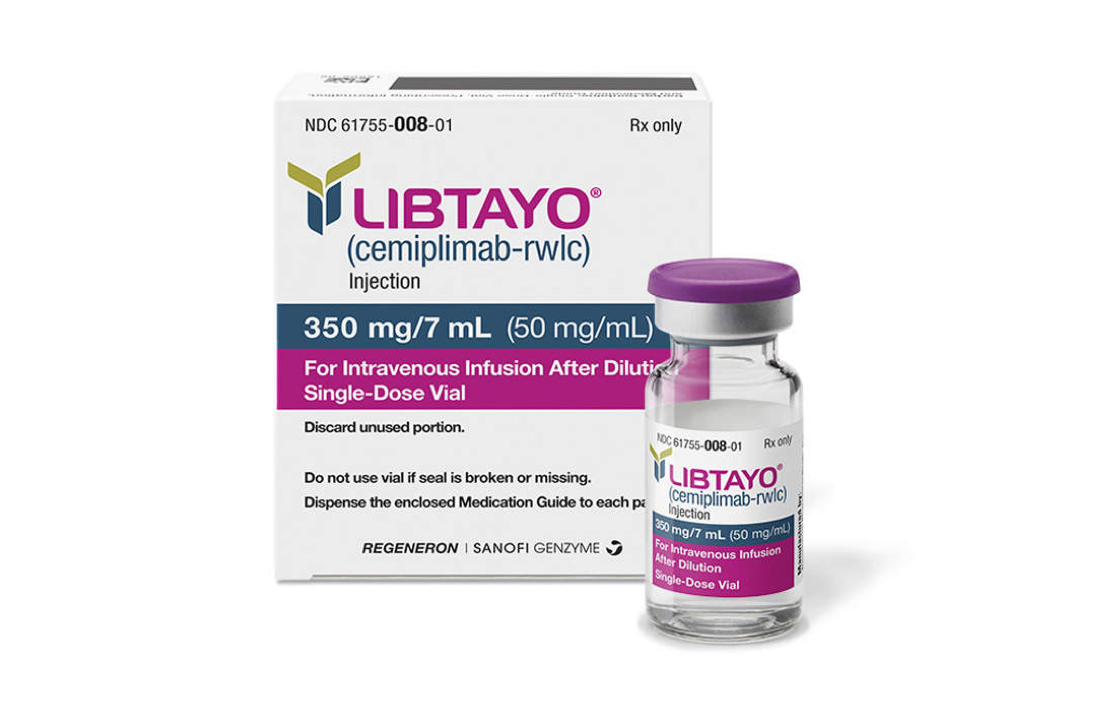Tagrisso (osimertinib) vs Libtayo (cemiplimab)
Tagrisso (osimertinib) vs Libtayo (cemiplimab)
Tagrisso (osimertinib) is a targeted therapy specifically designed to treat non-small cell lung cancer (NSCLC) with certain mutations in the EGFR gene, and it works by inhibiting the activity of these mutated proteins. Libtayo (cemiplimab), on the other hand, is an immune checkpoint inhibitor used to treat various types of cancers, including NSCLC, by enhancing the body's immune response against cancer cells. The choice between Tagrisso and Libtayo would depend on the patient's specific type of cancer, its genetic makeup, and overall health, as these medications have different mechanisms of action and are used based on the presence of specific biomarkers and the patient's suitability for immunotherapy or targeted therapy.
Difference between Tagrisso and Libtayo
| Metric | Tagrisso (osimertinib) | Libtayo (cemiplimab) |
|---|---|---|
| Generic name | Osimertinib | Cemiplimab |
| Indications | Non-small cell lung cancer (NSCLC) with specific EGFR mutations | Cutaneous squamous cell carcinoma (CSCC), Basal cell carcinoma (BCC), and Non-small cell lung cancer (NSCLC) |
| Mechanism of action | EGFR tyrosine kinase inhibitor | Programmed death receptor-1 (PD-1) blocking antibody |
| Brand names | Tagrisso | Libtayo |
| Administrative route | Oral | Intravenous |
| Side effects | Diarrhea, rash, dry skin, nail toxicity, and fatigue | Fatigue, rash, musculoskeletal pain, and diarrhea |
| Contraindications | Patients with hypersensitivity to osimertinib or any excipient | Patients with hypersensitivity to cemiplimab or any of its excipients |
| Drug class | Antineoplastic agent | Immune checkpoint inhibitor |
| Manufacturer | AstraZeneca | Regeneron Pharmaceuticals, Inc. in collaboration with Sanofi |
Efficacy
Tagrisso (Osimertinib) and Its Efficacy in Lung Cancer
Tagrisso (osimertinib) is a third-generation, irreversible epidermal growth factor receptor tyrosine kinase inhibitor (EGFR TKI) that has been specifically designed to target EGFR mutations. It is particularly effective in treating non-small cell lung cancer (NSCLC) with specific EGFR mutations. Clinical trials have demonstrated that osimertinib is effective in patients with NSCLC harboring EGFR T790M mutation, which is a common mutation associated with resistance to earlier generations of EGFR TKIs. In the AURA3 study, osimertinib significantly improved progression-free survival compared to platinum-based chemotherapy in patients with T790M-positive advanced NSCLC who had progressed after first-line EGFR TKI therapy.
Moreover, the FLAURA trial revealed that osimertinib also offers a first-line treatment advantage for patients with locally advanced or metastatic NSCLC with EGFR exon 19 deletions or exon 21 L858R mutations. The study showed a substantial improvement in progression-free survival for patients treated with osimertinib compared to those who received standard EGFR TKIs. This has led to osimertinib's approval as a first-line treatment option for this patient population, offering a new standard of care for those with EGFR-mutated NSCLC.
Libtayo (Cemiplimab) and Its Efficacy in Lung Cancer
Libtayo (cemiplimab) is a fully human monoclonal antibody targeting the immune checkpoint receptor PD-1 (programmed death-1) on T cells. It has been approved for the treatment of patients with metastatic NSCLC with ≥50% PD-L1 expression, as determined by an FDA-approved test, with no EGFR, ALK, or ROS1 aberrations. In a pivotal phase 3 trial, cemiplimab demonstrated a significant improvement in overall survival and progression-free survival compared to chemotherapy in patients with advanced NSCLC with high PD-L1 expression. This has positioned Libtayo as an important treatment option for this subset of lung cancer patients.
The use of cemiplimab in NSCLC is based on the understanding that blocking the interaction between PD-1 and its ligands can enhance T-cell responses in vitro and mediate antitumor activity. The efficacy of Libtayo in lung cancer highlights the importance of immunotherapy in the current landscape of cancer treatment, offering hope for improved outcomes in patients with advanced disease. As research continues, the role of cemiplimab may expand to include other indications and combination therapies to further enhance its efficacy in lung cancer.
Regulatory Agency Approvals
Tagrisso
-
European Medical Agency (EMA), European Union

-
Food and Drug Administration (FDA), USA

-
Health Canada

-
Therapeutic Goods Administration (TGA), Australia

-
Medsafe (NZ)

Libtayo
-
European Medical Agency (EMA), European Union

-
Food and Drug Administration (FDA), USA

-
Health Canada

Access Tagrisso or Libtayo today
If Tagrisso or Libtayo are not approved or available in your country (e.g. due to supply issues), you can access them via Everyone.org.
How it works

Make an enquiry
Choose the medicine you want to buy, answer a couple of questions, and upload your prescription to speed things up. We’ll get back to you within 24 hours.


Make an enquiry
Choose the medicine you want to buy, answer a couple of questions, and upload your prescription to speed things up. We’ll get back to you within 24 hours.


Breeze through the paperwork
We'll guide you through the required documents for importing unapproved medicine, ensuring you have all the necessary information.


Get a personalized quote
We’ll prepare a quote for you, including medicine costs and any shipping, administrative, or import fees that may apply.


Receive your medicine
Accept the quote and we’ll handle the rest - sourcing and safely delivering your medicine.

Some text on this page has been automatically generated. Speak to your physician before you start a new treatment or medication.
Let's talk
If you have any questions, call us or send us a message through WhatsApp or email:
Contact us




